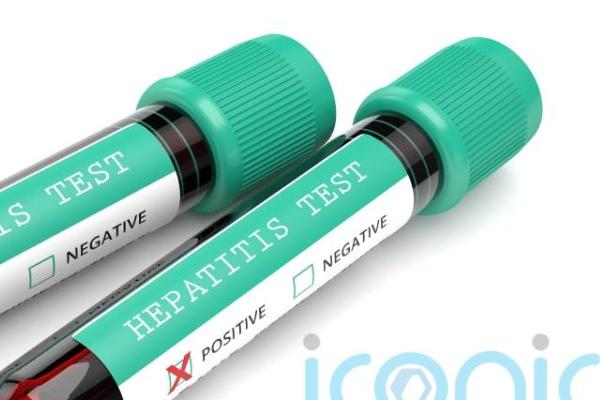Symptoms of Dental Infection: Recognizing Signs for Timely Intervention

Strong 8k brings an ultra-HD IPTV experience to your living room and your pocket.
Symptoms of Dental Infection: Recognizing Signs | Healthcare 360 Magazine
Dental infections can be insidious, often manifesting with subtle symptoms that can escalate if not promptly addressed. Understanding the signs of infection is crucial for early detection and treatment, preventing potential complications. This comprehensive guide explores the various symptoms of dental infection, highlighting their implications and the importance of seeking timely dental care.
What is a Dental Infection?
A dental infection, also known as a tooth abscess or dental abscess, occurs when bacteria invade the dental pulp—the soft inner part of the tooth containing nerves, blood vessels, and connective tissue. This bacterial invasion typically results from untreated tooth decay, trauma to the tooth, or gum disease (periodontitis). The infection can spread to surrounding tissues and bones if left untreated, leading to severe consequences.
Symptoms of Dental Infection
Symptoms of Dental Infection: Recognizing Signs | Healthcare 360 Magazine
Tooth Pain: One of the primary symptoms of this is persistent, throbbing tooth pain. This pain may be localized to a specific tooth or radiate to the jawbone, ear, or neck. The intensity of pain can vary from mild discomfort to excruciating agony, often worsening with chewing or biting.
Sensitivity to Temperature: Dental infections can cause increased sensitivity to hot or cold foods and beverages. Sudden pain or discomfort when consuming hot tea or ice cream may indicate an underlying dental issue, such as infection or tooth decay.
Swelling: Swelling around the affected tooth or in the face and neck region is a common symptom of dental infection. The swelling may be accompanied by redness and tenderness, indicating inflammation as the body’s immune response tries to combat the infection.
Bad Breath or Bad Taste: An unpleasant taste in the mouth or persistent bad breath (halitosis) can be indicative of a dental abscess. The buildup of pus from the infection can emit foul-smelling gases or liquids, contributing to oral malodor.
Fever: In some cases, a dental infection can lead to a fever. Fever is the body’s natural response to infection, signaling that the immune system is actively fighting off bacteria. If you experience fever along with other dental symptoms, it may indicate a spreading infection that requires urgent dental care.
Difficulty Swallowing or Breathing: Severe dental infections, particularly those affecting the throat or jaw, can cause difficulty in swallowing or breathing. This is a serious symptom that requires immediate medical attention to prevent further complications.
Pus Discharge: If a dental abscess ruptures, pus may drain from the affected area into the mouth. This discharge may have a foul taste and odor and can contribute to oral discomfort and bad breath.
Enlarged Lymph Nodes: Swollen or tender lymph nodes in the neck or under the jaw can be a sign that the body is responding to an infection. Enlarged lymph nodes may accompany other symptoms of dental infection, indicating a need for dental evaluation.
General Malaise: Feeling generally unwell or fatigued without a clear cause could be a sign that your body is fighting an infection. Dental infections can sometimes cause systemic symptoms such as malaise or a feeling of being “run down.”
Loose Teeth: Advanced dental infections, particularly those involving the bone supporting the teeth, can cause teeth to become loose or shift position. This is a serious sign of dental disease that requires immediate dental intervention.
Symptoms of Dental Infection: Recognizing Signs | Healthcare 360 Magazine
Importance of Early Detection and Treatment
Recognizing the symptoms of dental infection early is crucial for preventing the spread of infection and potential complications such as tooth loss, bone loss, or systemic infection. Prompt treatment by a dentist can include draining the abscess, removing decayed tissue, and prescribing antibiotics to clear the infection.
Delaying treatment can lead to more extensive and costly dental procedures, as well as increased pain and discomfort. Regular dental check-ups are essential for identifying and addressing dental infections before they escalate.
Prevention and Home Care Tips
In addition to recognizing the symptoms of dental infection, maintaining good oral hygiene is paramount for preventing dental issues. Here are some essential tips:
Brush and Floss Regularly: Brush your teeth at least twice a day with fluoride toothpaste and floss daily to remove plaque and bacteria that can lead to tooth decay and gum disease.
Use Mouthwash: Incorporate antimicrobial mouthwash into your oral care routine to help reduce bacteria that cause plaque and gum disease.
Healthy Diet: Eat a balanced diet rich in fruits, vegetables, whole grains, and lean proteins. Limit sugary snacks and beverages, which can contribute to tooth decay.
Stay Hydrated: Drink plenty of water throughout the day to maintain saliva production, which helps protect against tooth decay and infection.
Quit Smoking: Smoking weakens your immune system and increases your risk of gum disease, which can lead to dental infections.
When to Seek Dental Care
While practicing good oral hygiene can reduce your risk of dental infections, it’s essential to be vigilant and recognize when professional dental care is needed:
Symptoms of Dental Infection: Recognizing Signs | Healthcare 360 Magazine
Regular Check-ups: Schedule regular dental check-ups and cleanings to detect early signs of dental problems and prevent infections.
Persistent Symptoms: If you experience persistent tooth pain, sensitivity, swelling, or bad breath that doesn’t improve with home care, seek prompt dental evaluation.
Emergency Symptoms: If you develop symptoms such as fever, difficulty swallowing or breathing, or facial swelling, seek immediate medical or dental attention.
Conclusion
By understanding the symptoms of dental infection and adopting preventive measures, you can safeguard your oral health and overall well-being. Early detection and treatment are crucial for managing dental infections effectively and preventing complications. Remember, your dentist is your partner in maintaining a healthy smile—don’t hesitate to reach out if you have concerns about your dental health. With proper care and attention, you can enjoy a confident smile and optimal oral health for years to come.
Note: IndiBlogHub features both user-submitted and editorial content. We do not verify third-party contributions. Read our Disclaimer and Privacy Policyfor details.







